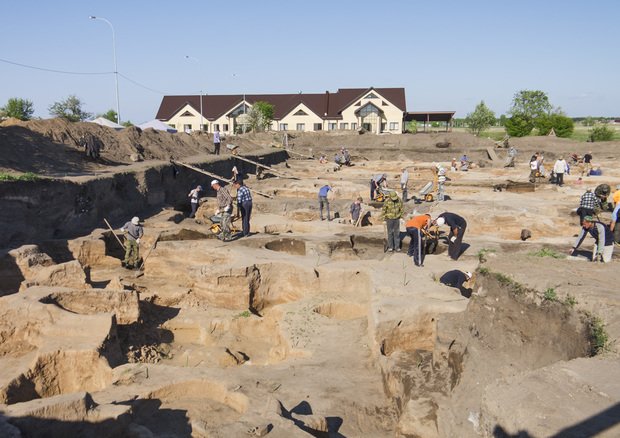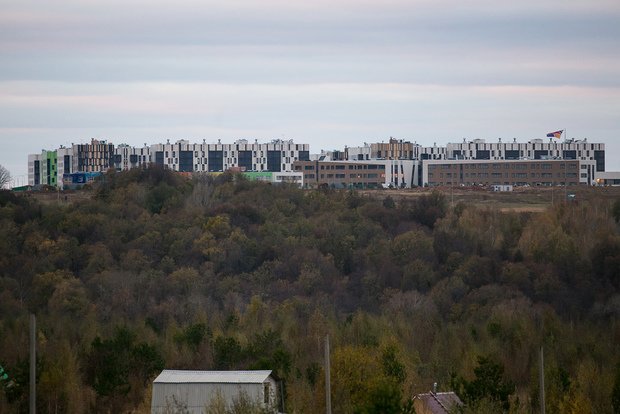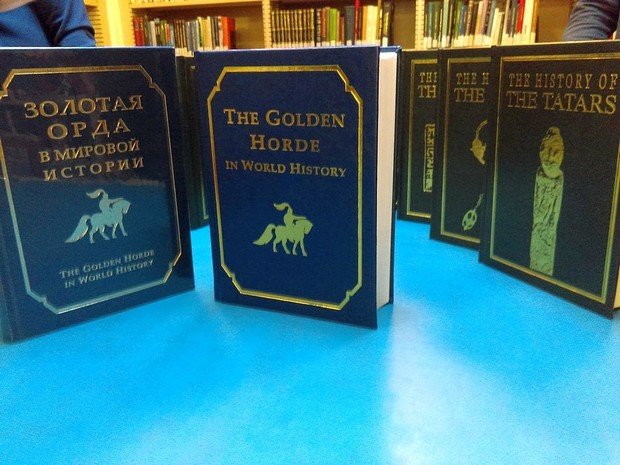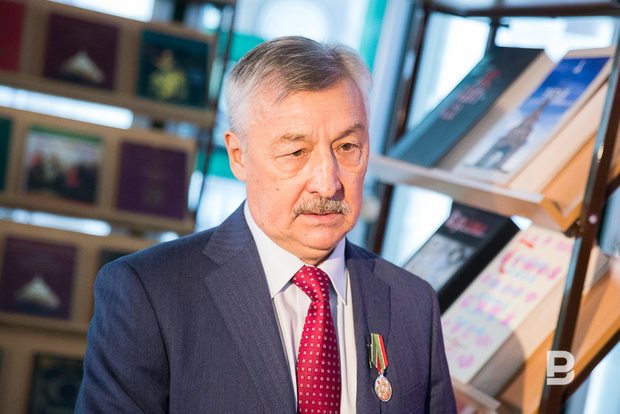Does Tatarstan need its academy of sciences?
Polemic column of Rafael Khakimov, the director of the Institute of History at the Academy of Sciences of the Republic of Tatarstan
Rafael Khakimov, the director of the Marjani Institute of History, asks how the Academy of Sciences of Tatarstan should develop, what it should be like. According to the academician, the republic could go the European way, leaving a minimum staff of about 15-20 people, and many functions could be performed on the principles of outsourcing. Realnoe Vremya presents the polemical article.
''Everyone was inspired by digital economy — it became clear that we finally departed from barter''
The regular general meeting of the Academy of Sciences of the Republic of Tatarstan (AS RT) has recently taken place. Once such events were events of regional scale. They aroused interest not only among specialists and the public, but also among the government at the highest level.
The whole spirit of the meeting was permeated with digitization. We were encouraged to use computers and lauch platforms where to spread scientific works. Everyone was inspired by digital economy, it became clear that we finally departed from barter and now the country, and the region together with it, is developing successfully.
At the meeting I wanted to hear something about achievements, scientific discoveries, prospects of scientists of the Republic of Tatarstan, but again, for the umpteenth time, they were telling about the need to publish the sixth volume of the Tatar Encyclopedia, the development of industry encyclopedias and, of course, digitization. They said something about the importance of semiotics and applied digital research (they did not specify which exactly). With the Tatar language everything turned out to be ok, it is also being digitized. The past storm around the status of the Tatar language has not touched the Academy of Sciences, and thank God! The archaeologists gave the lecture, but not on archaeology, but, in general, on something pseudo-scientific with the schemes of human digital communication. Looks like the archaeologists are exhausted. They are marking time in the city of Bolgar. In principle, the excavations can be done until the end of the 21st century, because the ancient city has been studied at about 5-7%. There is enough work for everyone, and most importantly, there is no scientific component, only reports. No one from the university reported this time, and for some reason it did not surprise anyone.

''It seems that archaeologists are exhausted. They are marking time in the city of Bolgar. In principle, the digs can be carried out until the end of the 21st century, because the ancient city is studied at about 5-7%. There is enough work for everyone, and most importantly, there is no scientific component, only reports.'' Photo: kaliki.ru
''The reports were like sleeping pills''
In general, the reports were like sleeping pills. I remembered the words of Mark Twain: ''If you have nothing to say, say nothing.'' However, an interesting question suddenly appeared in the report of the president, ''Why does the republic need the academy?'' This question was asked as a home assignment. Really, why? The question itself is provocative, because it implicitly contains the answer: ''The academy is not needed.'' It would be good if such question was asked only in Kazan, but it is raised at the level of the whole of Russia: ''Does the country need the Russian Academy of Sciences?'' It's like mental ferment.
The comparison of the results of research and the volume of funding (it is, of course, scanty in comparison with Western) in the government of both Russia and Tatarstan speaks not in favour of scientists, and the criticism of financial institutions is exacerbated during economic trouble. Tatarstan has a slightly better economic situation than the country as a whole, but we also know how to count money.
What, in fact, does the republic need from academics? Breakthrough technologies, increasing competitiveness, investment attractiveness. It's obvious. It seems that there are results in the petrochemical and other industries, as well as in agriculture, a relatively good economic growth of almost four percent, the new science city of Innopolis. But what does the academy have to do with it all? It had nothing to do with it. Economics is separate, and scientists are separate. The AS RT is financially well secured, all the buildings have been renovated, the salary and bonuses allow them to maintain the average level. But where are the returns? The government has the right to ask and will ask one day.

''It seems that there are results in the petrochemical and other industries, as well as in agriculture, a relatively good economic growth of almost four percent, the new science city of Innopolis. But what does the academy have to do with it all? It had nothing to do with it. Economics is separate, and scientists are separate.'' Photo: Roman Khasaev
''Humanitarians turned out to be in a distinct minority, have become something of an appendix''
The AS RT is clearly divided into two parts: humanities scholar and natural science scholars. Natural science scholars are the majority, but they work in other institutions, where they have already reported on the money, but in our AS RT they just sit, listen carefully and vote. Inventions in applied fields are made by technicians, natural science scholars, and not at the expense of the budget of the Tatarstan Academy of Sciences.
In general, talks about the division of sciences on fundamental and applied are from evil. Any real fundamental science appears on the basis of practical problems, but not vice versa. The peculiarity of the Humanities in their proximity to the needs of society, but we prefer to deal with their favourite topic, not linking it with practice. Many researchers come from the material of the thesis, trying to apply it somewhere – just like Mark Twain said: 'If your only tool is a hammer then every problem looks like a nail.'' So everyone walks around with his hammer and looks for the right nail. The needs of the republic have been sidelined.
Initially, the academy was established for Humanities, as Natural Sciences already exist well within the specialized institutes of the Russian Academy of Sciences (RAS). Therefore, it would be possible to create a Humanitarian Academy of Sciences, which is logical. However, in the republic, many suffer from gigantomania, so the AS RT began to include for solidity(!) the scientists of the Russian Academy of Sciences and universities. Humanitarians turned out to be in a distinct minority, have become something of an appendix. There are no common themes uniting natural science scholars and humanitarians. We're just sitting together at the same round table.
The administrative structure of the Republic of Tatarstan includes only humanitarian institutions, but without the Institute of History, because we are an independent state-financed institution. Surprisingly, the report of the academy says no word about the Marjani Institute of History at the AS RT, as if we don't exist, as if I'm not vice president of the AS RT. We did not perceive the ''vertical'' because it sickens academic science. The correctness of our position is confirmed by the results of the work. According to Russian Science Citation Index (RSCI), the institute is ahead of the Tatarstan Academy of Sciences by the number of publications in the last five years, despite the fact that its composition is several times more than the institute. According to the h-index, the institute ranks fifth among scientific and educational organizations of the republic. The AS RT takes the 14th position by the same indicator. You can compare other indicators of RSCI — publications in journals of VAK, Scopus, etc. In addition, we are funded several times fewer. The number, of course, is not the only indicator. There are also other indicators. The presentations raised the question of the increase in the number of articles published in journals indexed by Scopus and Web of Science. Some pseudo-scientists began to buy space in such magazines and print ''garbage'' articles. We went the other way. Out of the six magazines that are published under the stamp of the institute, one — The Golden Horde Review — was in Scopus (the first in Kazan!), and in Web of Science. Sometimes we hear about the specifics of the Tatar theme, which allegedly does not seem like the world level. But it is the world level. It is exactly that specificity that attracts the international scientific community, otherwise we would not get into Scopus.

''Initially, the academy was created for Humanities, as Natural Sciences already exist well within the specialized institutes of the Russian Academy of Sciences (RAS). Therefore, it would be possible to create a Humanitarian Academy of Sciences, which is logical''
Why does the institute publish six journals? Seems a bit much. The thing is that the institute has many specializations: history for different periods, ethnology, national education, Islamic studies, the culture of the Kryashens and the peoples of the Volga-Ural region. The Crimean branch of the institute publishes its magazine Crimean Historical Review. A full-fledged journal is an indicator of the existence of an independent research direction.
''The past year was 'rich' in denouncements on the Institute and specifically the director''
Interestingly, the question of the need for the Institute of History had never been raised. We were originally created for a specific government task — to write the true story of the Tatars and Tatarstan. The practical meaning of the work of historians is difficult to calculate in monetary terms, but there is a tangible result in the form of textbooks; museums; tourist routes; the history of districts and villages; the image of the republic, which helps public institutions and even business. The interest of business is very specific — to increase the investment attractiveness of the republic thanks to serious and unique publications. Surprising a business partner with your history and culture means creating a basis for trust. That is why the business sponsors of our major projects, including translations into English and Turkish of a number of fundamental works: The History of the Tatars since Ancient Times, in seven volumes, The Golden Horde in World History (joint publication with the University of Oxford), Tartarica, The Tatars (joint publication with the Russian Academy of Sciences). Except for transfers, large research projects are funded. This is all particular embodiment of fundamental research.
Exhibitions related to history, republican events, such as The Year of Marjani or 100th anniversary of TASSR, etc., are held with our scientific support. The 1000th anniversary of Kazan laid the organizational foundations for subsequent mega-projects similar to the Universiade.
Concentration on narrow subjects is extremely harmful for science. When there is no defined strategy with daunting tasks, people begin to engage in intrigues, squabbles. The past year was ''rich'' in denouncements on the institute and specifically the director, about whom with enviable regularity there are rumours about his imminent leaving. A list of candidates has already been drawn up, headed, by the way, not by a historian. Denouncements were accompanied by inspections of the prosecutor's office, ministry of education and other regulatory bodies. They started in February and finished in June. How much working time was spent, how many papers were rummaged to draw the conclusion: ''Historians do not steal''. Although it became clear after a week, but stretched for 5 months. Involuntarily one would think whether it is necessary to work diligently? It is better to do nothing but the plan, and then there will be no problems.

''Concentration on narrow subjects is extremely harmful for science. When there is no defined strategy with daunting tasks, people begin to engage in intrigues, squabbles.'' Photo: Maksim Platonov
Let's get back to the main question: ''Does the republic need the academy?'' Of course, it does, but what it should be like? The current state-financed institution with a swollen administrative apparatus is suitable for devouring millions. World practice bypassed Russia, but, nevertheless, their approach is interesting. There are independent institutions funded by foundations and sponsors. The most outstanding scientists are admitted to the club of academics, if such honour will be awarded. The value of such club as an expert community is that it is able to assess the role of science in the development of the country, to offer projects that give real impact in the social and economic spheres.
Tatarstan could go the European way, but then it will be necessary to reformat the AS RT, leaving a minimum staff of about 15-20 people, because many functions can be outsourced. In this case, the function of the academy will not be the management of humanitarian institutions, but the organization of the expert community of the Republic of Tatarstan for the preparation of promising projects, conclusions, expert assessments. Then it will be clear what academics get scholarships for.